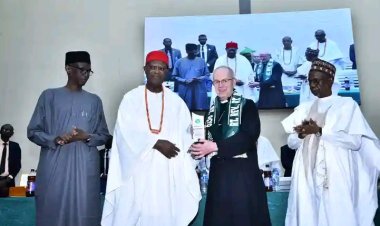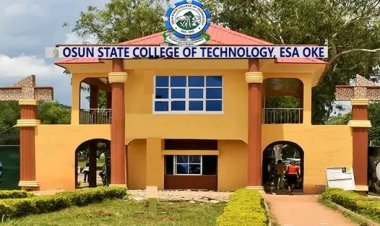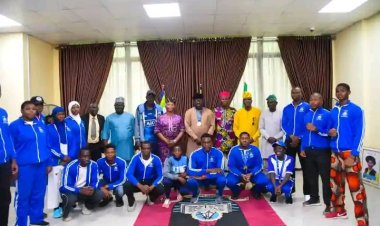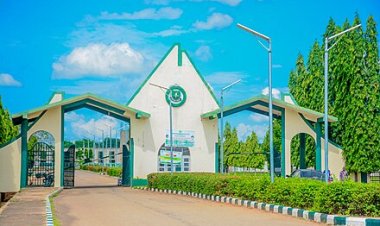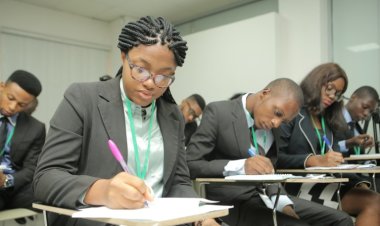Nigeria Needs to Attract Foreign Students to Boost Economy — Ex-ABUAD VC
Prof. Sidi Osho, the former Vice-Chancellor of Afe Babalola University Ado-Ekiti (ABUAD), recently spoke at the National Education Stakeholders’ Conference in Lagos, advocating for significant investments in Nigeria's education sector to attract foreign students and investors.
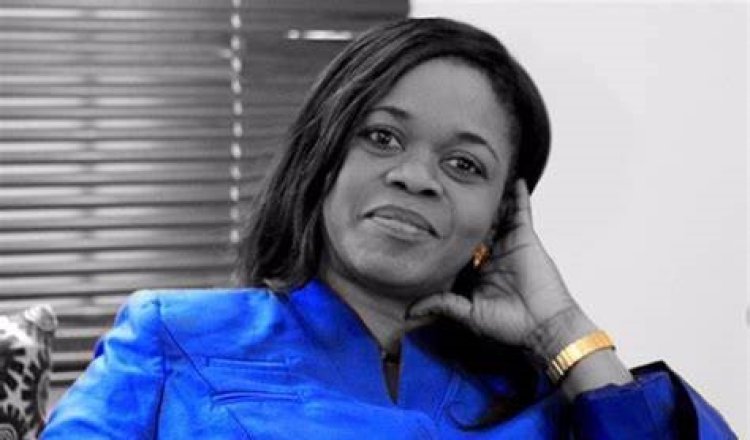
In a recent address at the National Education Stakeholders’ Conference in Lagos, Prof. Sidi Osho, the pioneer and former Vice-Chancellor of Afe Babalola University Ado-Ekiti (ABUAD), emphasized the need for Nigeria to invest significantly in its education sector to attract foreign students and investors.
Prof. Osho delivered a keynote speech on "Private Initiatives and the Nigerian Education Sector: Gains, Shortfalls, and Ways Forward," where she underscored the importance of promoting transnational education. She argued that making Nigeria the largest educational market in Africa could enhance the local economy and alleviate pressure on foreign exchange demands.
Referencing a report from the Central Bank of Nigeria, Prof. Osho highlighted that capital flight, including personal travel allowances for Nigerians studying abroad, amounted to $58.7 billion between 2010 and 2020. She pointed out that a substantial portion of this capital could have bolstered the Nigerian economy and strengthened the Naira.
Osho acknowledged the challenges faced by both public and private educational institutions in Nigeria but praised the private sector's significant contributions to educational development and workforce production. She noted that the private education sector has rapidly expanded, with the number of newly established private schools surpassing public schools by five times, and enrollments being approximately ten times higher over the last two decades.
Emphasizing the need for collaboration, Prof. Osho called for the involvement of all stakeholders, including the government, organized private sector, academia, civil society, community-based organizations, and the media, to drive sustainable education reform.
In a separate presentation, Prof. Godwin Oyedokun addressed the "Impacts of Effective Education Budgeting in National Development," urging educators and school owners to avoid emotional spending. He warned that unintentional and reckless spending habits often extended to businesses, jeopardizing sustainability.
Mr. Sule Tolani, the Lagos State Commissioner for Tertiary Education, represented by the Permanent Secretary, Mr. Adeniran Kasali, acknowledged the vital role of private educators in addressing Nigeria’s educational needs. He stated that the partnership between the private sector and the government is essential to meet the 21st-century workforce demands.
In her welcome address, Mrs. Modupe Onabanjo, CEO of Education Update International, highlighted the necessity for a globally competitive education system in Nigeria. She noted that the conference aimed to evaluate the current state of the education sector and determine actionable steps for improvement. A communiqué detailing the conference outcomes will be shared with relevant authorities for further action.
This call to action emphasizes the urgent need for strategic investments and partnerships within Nigeria’s education system to enhance its appeal to both local and international students.

 Chris Oyeoku Okafor
Chris Oyeoku Okafor 